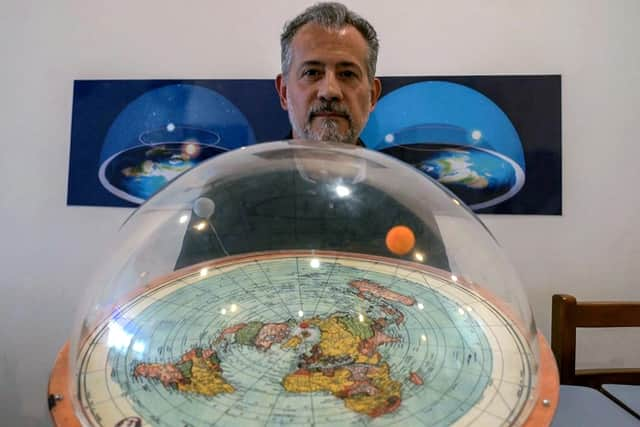Tory leadership contenders should beware the nonsense to be found in 'commonsense' economics – John McLaren
Take taxes. Liz Truss will cut corporation tax as it’s ‘common sense’ that this will raise the growth rate and get more tax revenues in.
Unfortunately the evidence – and this was enough to persuade Rishi Sunak when he was Chancellor of the Exchequer – suggests otherwise, which helps explain why he imposed big tax rises on business instead.
Advertisement
Hide AdAdvertisement
Hide AdWhere it can get more difficult and confusing is when, as with the latest interest rate hike, experts take directly opposing views.
Writing in the latest National Institute for Economic and Social Research (NIESR) economic outlook, former Monetary Policy Committee (MPC) member Andrew Sentance accuses the Bank of England of “a serious monetary policy failure” by not raising interest rates last year and by continuing to be on a “slow and ponderous course” now, which means that “the negative impact on the economy will be much harsher”.
Another former MPC member, Danny Blanchflower would have cut interest rates rather than raised them. He claims that “inflation is not the big deal, inflation is going to disappear… The worry is they’re going to have deflation”. This view would appear to be borne out by the fact that the Bank of England’s own forecasts have inflation falling to 0.3 per cent in 2025.
Both are recognised experts, both have reasonable arguments but it’s a little exasperating for the average punter or politician.
There are a couple of reasons for such a lack of consensus amongst experts. First, most economic questions are open to widely differing interpretations, based on alternative readings of the past and alternative expectations of the future.


Second, we are at a particularly difficult time to interpret economic trends. Not only do we have the imponderables of the war in Ukraine and on-going fallout from Brexit but we also have Covid behavioural changes to take into account.
Let’s take three examples. First, will those who left the labour market during lockdown – mainly the elderly decided to take early retirement – now be tempted back to help pay for higher living costs or will they stick with their new lifestyle?
Second, will wealthier households continue to spend their forced Covid savings or will they horde them as a shield against future higher prices?
Advertisement
Hide AdAdvertisement
Hide AdThird, will businesses accept a reduction in their profits in order to keep sales up or will they protect them by raising prices to fully offset their higher costs?
We don’t know the answers to any of these questions. They all depend on the behaviour of consumers, producers and political leaders and, in current times, we have little information to guide us on what choices will finally be made. Policy-wise, it is a case of being alert for changes in behaviour and nimble in response to them.
Which brings us to the thorny question of what to do about the very high energy prices households will face this winter.
Here things are a bit clearer, courtesy of some expert analysis. Changes to income tax and national insurance, as promoted by Team Truss, will be less effective in helping protect poorer households than more targeted payments, as supported by Team Sunak.
This point has been made by a variety of think tanks and last week the International Monetary Fund (IMF) also came down strongly in support of targeted support (or ‘handouts’ as Team Truss would dismiss them).
Meanwhile, the IMF believes that the rest of society needs to adjust to the reality of the market and higher prices for some time to come. They also point out the positive incentives arising from high energy prices in moving to more environmentally friendly and efficient practices.
These may be economically wise policies but they are also politically difficult to implement as it means that the majority of households – including most Tory party members – could get next to no support and all households will be expected to change their behaviour to incorporate the likes of less car travel and lower house temperatures.
In a plea for a return to the simple life, Liz Truss berated the performance of the Treasury and the Bank of England in an interview with the Financial Times last weekend. Of the Treasury, she remarked “there’s a desire to complicate things” which she is “prepared to take on” and she promises to review the mandate of the Bank of England.
Advertisement
Hide AdAdvertisement
Hide AdThe reality is that it is usually political considerations that lead to complicating and risk-averse policies. Treasury economists are hampered by various no-go areas with regards to simplifying tax policy or planning restrictions. Meanwhile, around the world the move to independent central banks has been recognised as a positive and stabilising one.
We are in the midst of incredibly challenging and highly unpredictable times. That’s not the fault of central banks but they are at the forefront of having to deal with it, fortunately without having to pander to some small subset of the British population.
Common sense can take you so far, expert analysis is not all knowing but it tends to steer towards good policy decisions and, just as important, away from bad ones.
As Donald Dewar used to say after economics briefings, “it’s all very complicated, isn’t it?” Alas, it is.
John McLaren is a political economist who has worked in the Treasury, the Scottish Office and for a variety of economic think tanks
Comments
Want to join the conversation? Please or to comment on this article.
